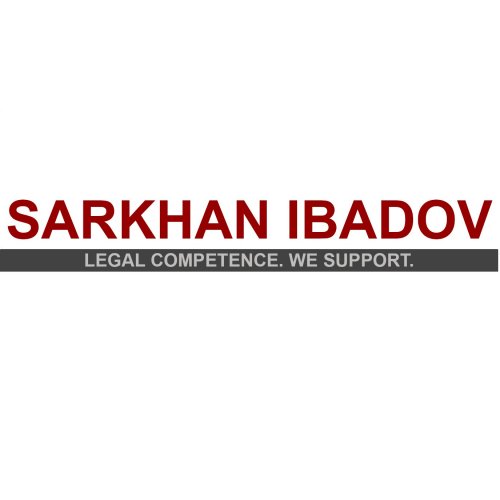Best Water Law Lawyers in Baku
Share your needs with us, get contacted by law firms.
Free. Takes 2 min.
List of the best lawyers in Baku, Azerbaijan
About Water Law in Baku, Azerbaijan
Water Law in Baku, Azerbaijan, is a set of legal principles, regulations, and policies governing the use, management, and protection of water resources in the city and greater region. The legal framework is shaped by national law, local regulations, and international agreements relevant to water distribution, pollution prevention, ownership rights, and dispute resolution. Baku relies heavily on carefully managed water resources from the Caspian Sea, groundwaters, and rivers, making Water Law a critical field that affects residents, industries, farmers, and government agencies alike.
Why You May Need a Lawyer
There are many situations where individuals and businesses in Baku might require the expertise of a lawyer specializing in Water Law. Common scenarios include:
- Disputes over water use or access between properties or businesses
- Negotiating water rights or drafting contracts for water supply
- Addressing penalties or compliance issues with water quality regulations
- Responding to environmental claims or accusations about pollution
- Challenging government decisions regarding water usage allocations or restrictions
- Dealing with permit applications for wells or water infrastructures
- Participating in public water projects or infrastructure developments
Lawyers can guide you through local and national regulations, communicate with authorities, and represent you in court or administrative hearings.
Local Laws Overview
Water Law in Baku and Azerbaijan is based on a combination of the national Water Code of the Republic of Azerbaijan and municipal regulations specific to the city and the Absheron Peninsula. Key aspects include:
- Ownership and Use: Water resources are generally owned by the state, but private use and access are permitted under licensing and regulatory schemes.
- Permits and Licensing: Extraction of groundwater or use of surface water for commercial or industrial purposes requires permits from relevant authorities, with strict requirements for compliance.
- Water Pollution Control: Strict regulations are in place to control discharge of pollutants into water bodies. Businesses and industrial facilities must meet environmental standards.
- Drinking Water Quality: There are set standards for water quality to protect public health. Violations can result in fines or facility closures.
- Water Infrastructure: Construction or modification of water supply and sewage infrastructures must comply with both local and national building codes.
- Protection Zones: Certain areas near rivers, lakes, and reservoirs are protected zones, restricting any activity that could harm water quality or supply.
- Public Participation: Some water management processes, like public consultations for environmental projects, allow for community input.
- International Agreements: Baku must comply with cross-border water usage agreements, especially those related to the Caspian Sea.
Understanding these rules is essential for anyone using, managing, or developing water resources in Baku.
Frequently Asked Questions
What authorities regulate water resources in Baku, Azerbaijan?
The Ministry of Ecology and Natural Resources, the State Agency for Water Resources, and local municipal bodies oversee water regulation, licensing, and enforcement in Baku.
Do I need a permit to drill a well or use groundwater?
Yes, individuals and businesses must obtain official permits before drilling or using groundwater for any purpose other than limited domestic use.
How can I resolve a dispute over water use with my neighbor?
Many disputes can be resolved through local mediation or negotiations. If that fails, you may file a complaint with the municipal authorities or pursue legal action with the assistance of a Water Law specialist.
What should I do if I suspect illegal water pollution?
Report suspected pollution to the Ministry of Ecology and Natural Resources. You may also consult a lawyer to consider civil or criminal actions against those responsible.
Are water rights transferable in Baku?
Generally, water rights and permits are not directly transferable between private parties without approval from relevant regulators, who must ensure continued compliance with water usage and quality standards.
What are the penalties for violating water regulations in Baku?
Penalties can include fines, suspension of permits, mandatory remediation, and in severe cases, criminal prosecution.
Is water pricing regulated by law?
Yes, water rates for domestic, commercial, and industrial use are regulated and periodically reviewed by government authorities to ensure fairness and sustainability.
How are water conservation and drought addressed by law?
During periods of shortage or drought, the government can impose restrictions on water use and revise allocations to prioritize essential services and public needs.
Can I use water from rivers or the Caspian Sea freely?
No, direct use of river or sea water for most purposes requires obtaining special permits and meeting environmental protection standards.
What protection exists for drinking water sources?
Drinking water sources are strictly regulated, with protection zones established to prevent contamination and enforce compliance with public health standards.
Additional Resources
If you need more information or wish to contact a relevant authority, consider the following resources:
- Ministry of Ecology and Natural Resources of the Republic of Azerbaijan
- State Agency for Water Resources
- Baku Water Canal (BakSu) - municipal water supply organization
- Azerbaijan Lawyers Association - for legal referrals
- Environmental NGOs active in Baku
These bodies can provide official guidance, legal advice, and information on the procedures related to Water Law matters.
Next Steps
If you believe you have a Water Law issue in Baku, start by gathering as much information as possible about your specific situation, including permits, correspondence, or evidence. Contact the relevant authority or organization indicated above for initial guidance. For more complex or contentious issues, consult with a qualified lawyer who specializes in Water Law. A legal professional can assess your case, explain your rights and obligations, represent your interests before regulatory agencies or courts, and help you achieve the best possible outcome. Acting promptly is often crucial in Water Law matters, especially where permits, disputes, or regulatory deadlines are involved.
Lawzana helps you find the best lawyers and law firms in Baku through a curated and pre-screened list of qualified legal professionals. Our platform offers rankings and detailed profiles of attorneys and law firms, allowing you to compare based on practice areas, including Water Law, experience, and client feedback.
Each profile includes a description of the firm's areas of practice, client reviews, team members and partners, year of establishment, spoken languages, office locations, contact information, social media presence, and any published articles or resources. Most firms on our platform speak English and are experienced in both local and international legal matters.
Get a quote from top-rated law firms in Baku, Azerbaijan — quickly, securely, and without unnecessary hassle.
Disclaimer:
The information provided on this page is for general informational purposes only and does not constitute legal advice. While we strive to ensure the accuracy and relevance of the content, legal information may change over time, and interpretations of the law can vary. You should always consult with a qualified legal professional for advice specific to your situation.
We disclaim all liability for actions taken or not taken based on the content of this page. If you believe any information is incorrect or outdated, please contact us, and we will review and update it where appropriate.










